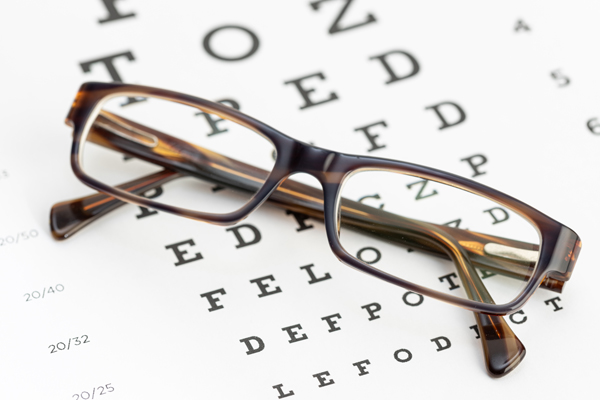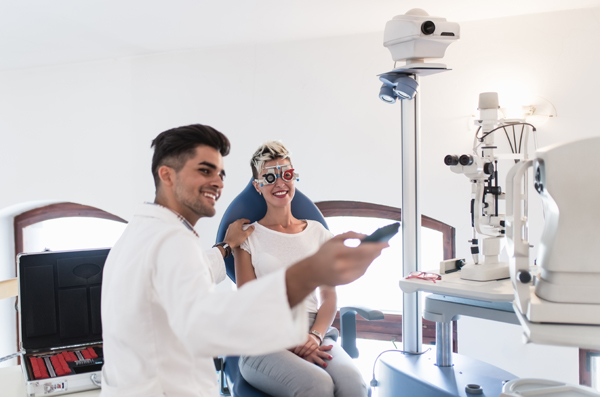Why Regular Visits to the Optometrist Are Essential

Optometrists ensure your eyes function properly and help maintain their internal and external health. They are trained to identify, treat, and manage conditions that affect any of these factors. Discover why maintaining a relationship with an optometrist's office through regular can greatly benefit your overall health and boost your quality of life.
The role of an optometrist
Optometrists are healthcare professionals who specialize in caring for the eyes, earning them the nickname of eye doctors. They are commonly believed to be medical doctors or MDs, but instead of attending medical school, they attend a school specializing in optometry in addition to college. According to UCLA Medical School, optometrists must complete a four-year bachelor's degree from an accredited institution before completing an additional three to four years of optometry school to earn a degree.
Reasons to visit an optometrist
Visiting an optometrist is often put on the back burner until people notice a shift in their vision quality or begin to experience abnormal symptoms. While these are still good times to check in with an optometrist, maintaining regular appointments gets ahead of potential conditions and serious vision changes. Take a closer look at three primary reasons we suggest maintaining regular checkup schedules.
1. Early detection of infection and diseases
Optometrists and their teams closely evaluate each eye using a series of tests and various tools. Therefore, they are able to identify conditions such as cataracts, macular degeneration, and glaucoma. They can also detect diabetes and some cancers with these close evaluations.
2. Ensures eyes are functioning properly
Optometrists perform a visual acuity and refraction test during each appointment. These tests ensure the eyes function properly and they are working well together. Patients can experience lazy eye (amblyopia), convergence insufficiency, or strabismus. All of which can be corrected or managed with timely intervention and appropriate care.
3. Improves vision clarity
Vision quality can change over time due to developing conditions or changes in the eye structure. Therefore, whether a patient once has 20/20 vision (normal vision according to the American Academy of Ophthalmology) and develops changes or always has problems seeing clearly without aides, an optometrist can help.
They perform tests to determine the presence of nearsightedness, farsightedness, astigmatism, and presbyopia. They can also perform tests to determine if the patient is colorblind. Testing will identify whether prescription vision aides such as contacts, eyeglasses, or eye drops will effectively achieve 20/20 vision.
How often should patients receive an eye appointment?
As a general rule of thumb, healthy patients between 18 and 64 should visit the optometrist every two years if they have no underlying threats to their vision or internal eye structure. Those over the age of 65 should begin annual visits. Of course, if patients are experiencing adverse reactions from medications, environments, or other products affecting their eyes, they are encouraged to make an appointment ahead of time.
Schedule an appointment in the Carmi area
Remember, vision changes are inevitable. Regular visual appointments with an optometrist are vital to maintaining 20/20 vision and optimal eye health. We will perform in-depth evaluations and provide the tools you need, and we can also recommend tactics for you to perform during your daily activities to safeguard your eyes. Contact our Carmi office to schedule an appointment.
Request an appointment here: https://www.carmieyecare.com or call Carmi Eye Care at (618) 374-0513 for an appointment in our Carmi office
Check out what others are saying about our services on Yelp: Optometrist in Carmi, IL.
Related Posts
When it comes to eye care, understanding the difference between an optometrist and an ophthalmologist is essential in order to receive the appropriate treatment. While both professionals specialize in eye health, their roles, qualifications, and scope of practice vary significantly. Knowing when to consult an optometrist versus an ophthalmologist can ensure that individuals receive the…
Glaucoma is a leading cause of irreversible vision loss, often developing without noticeable symptoms until significant damage has occurred. Effective glaucoma treatment is essential for preserving vision and preventing further deterioration. Treatment options range from non-surgical interventions, such as medications and laser therapy, to surgical procedures for advanced cases.Non-surgical glaucoma treatment is often the first…
A diabetic eye exam can be a life and vision saver for a diabetic. Diabetes is a serious disease and one that can be difficult to manage. Medication, proper diet and exercise, and regular medical care can be helpful for controlling blood sugar levels and reducing serious damage to the body. In spite of best…
Contact lenses are an alternative to glasses for those looking to improve their vision. They offer aesthetic appeal, a better and more natural field of vision, and flexibility, among other benefits. Despite these benefits, contact lenses require some adjustment and must be handled with care. Here are some key things to know if you are…


